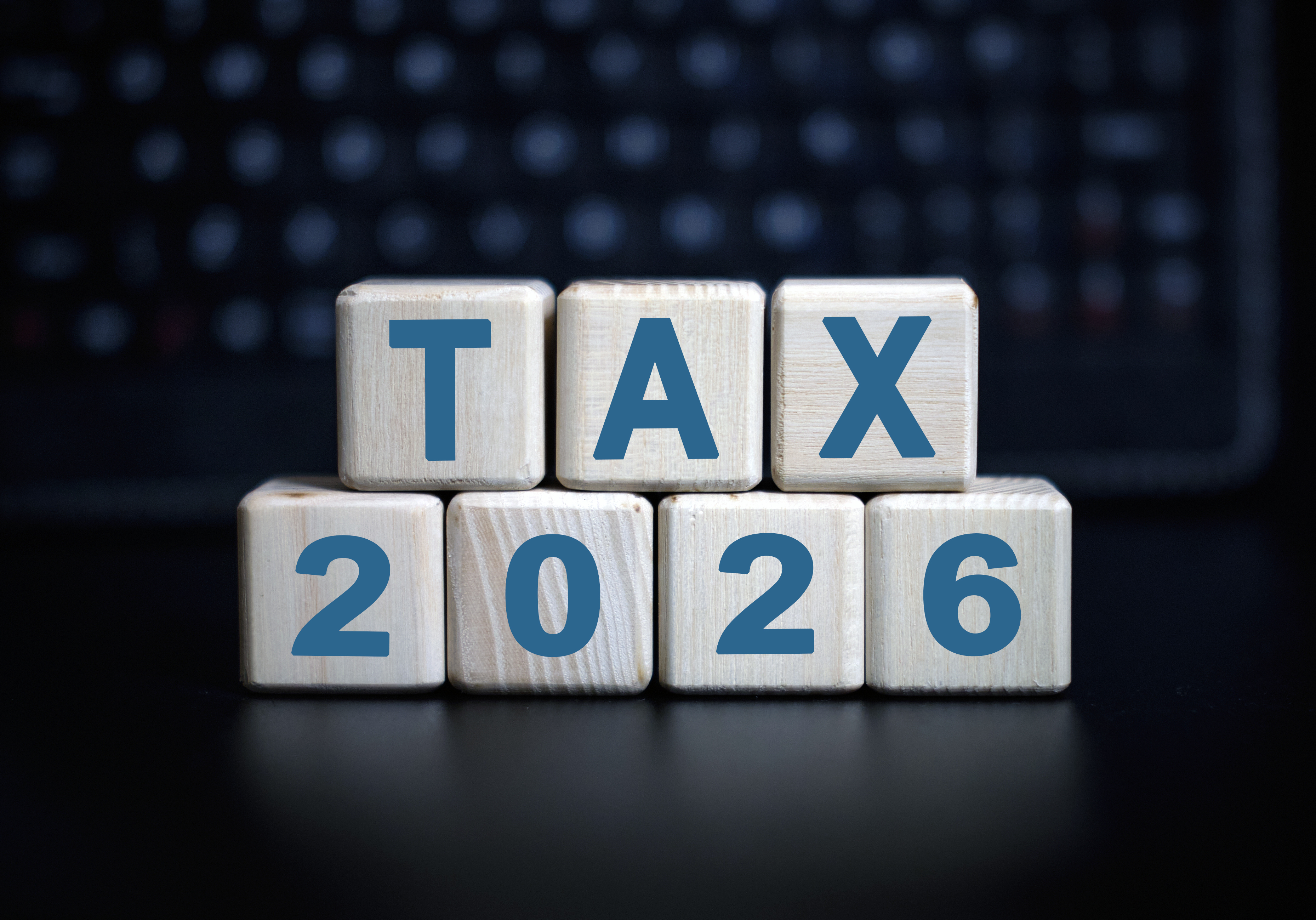Smaller IRA Withdrawals Coming Up
Starting in 2022, the amount you’ll be required to withdraw from your retirement accounts after age 72 will decline modestly—which means your tax bill will be smaller, too.


Profit and prosper with the best of Kiplinger's advice on investing, taxes, retirement, personal finance and much more. Delivered daily. Enter your email in the box and click Sign Me Up.
You are now subscribed
Your newsletter sign-up was successful
Want to add more newsletters?

Delivered daily
Kiplinger Today
Profit and prosper with the best of Kiplinger's advice on investing, taxes, retirement, personal finance and much more delivered daily. Smart money moves start here.

Sent five days a week
Kiplinger A Step Ahead
Get practical help to make better financial decisions in your everyday life, from spending to savings on top deals.

Delivered daily
Kiplinger Closing Bell
Get today's biggest financial and investing headlines delivered to your inbox every day the U.S. stock market is open.

Sent twice a week
Kiplinger Adviser Intel
Financial pros across the country share best practices and fresh tactics to preserve and grow your wealth.

Delivered weekly
Kiplinger Tax Tips
Trim your federal and state tax bills with practical tax-planning and tax-cutting strategies.

Sent twice a week
Kiplinger Retirement Tips
Your twice-a-week guide to planning and enjoying a financially secure and richly rewarding retirement

Sent bimonthly.
Kiplinger Adviser Angle
Insights for advisers, wealth managers and other financial professionals.

Sent twice a week
Kiplinger Investing Weekly
Your twice-a-week roundup of promising stocks, funds, companies and industries you should consider, ones you should avoid, and why.

Sent weekly for six weeks
Kiplinger Invest for Retirement
Your step-by-step six-part series on how to invest for retirement, from devising a successful strategy to exactly which investments to choose.
Generally, once you turn 72, you’re required to take a specific amount of money out of your individual retirement accounts (or other tax-deferred plans) every year, whether you need the money or not. Your required minimum distribution is based on the total amount of money in your tax-deferred accounts divided by a factor from IRS life-expectancy tables. The CARES Act, enacted in March 2020 in response to the coronavirus pandemic, allowed seniors to skip RMDs in 2020, but Congress is unlikely to extend that waiver this year.
Starting in 2022, the IRS will use new distribution tables to account for the fact that people are living longer—which means they need their savings to last longer, too. The new formula reflects life expectancies that are about one to two years longer than in the existing life-expectancy tables, which will reduce the size of RMDs. For example, under the current formula, a 72-year-old with $300,000 in an IRA would be required to withdraw $11,719. Under the new formula, her RMD would be $10,948, a difference of about 7%.
The last time the IRS revised the tables was in 2002. You can always take more than the required distribution—and many seniors do. But if you fail to take out the minimum, the penalty is 50% of the amount you should have withdrawn.
From just $107.88 $24.99 for Kiplinger Personal Finance
Become a smarter, better informed investor. Subscribe from just $107.88 $24.99, plus get up to 4 Special Issues

Sign up for Kiplinger’s Free Newsletters
Profit and prosper with the best of expert advice on investing, taxes, retirement, personal finance and more - straight to your e-mail.
Profit and prosper with the best of expert advice - straight to your e-mail.
Profit and prosper with the best of Kiplinger's advice on investing, taxes, retirement, personal finance and much more. Delivered daily. Enter your email in the box and click Sign Me Up.

Block joined Kiplinger in June 2012 from USA Today, where she was a reporter and personal finance columnist for more than 15 years. Prior to that, she worked for the Akron Beacon-Journal and Dow Jones Newswires. In 1993, she was a Knight-Bagehot fellow in economics and business journalism at the Columbia University Graduate School of Journalism. She has a BA in communications from Bethany College in Bethany, W.Va.
-
 Dow Loses 821 Points to Open Nvidia Week: Stock Market Today
Dow Loses 821 Points to Open Nvidia Week: Stock Market TodayU.S. stock market indexes reflect global uncertainty about artificial intelligence and Trump administration trade policy.
-
 Nvidia Earnings: Live Updates and Commentary February 2026
Nvidia Earnings: Live Updates and Commentary February 2026Nvidia's earnings event is just days away and Wall Street's attention is zeroed in on the AI bellwether's fourth-quarter results.
-
 I Thought My Retirement Was Set — Until I Answered These 3 Questions
I Thought My Retirement Was Set — Until I Answered These 3 QuestionsI'm a retirement writer. Three deceptively simple questions helped me focus my retirement and life priorities.
-
 3 Retirement Changes to Watch in 2026: Tax Edition
3 Retirement Changes to Watch in 2026: Tax EditionRetirement Taxes Between the Social Security "senior bonus" phaseout and changes to Roth tax rules, your 2026 retirement plan may need an update. Here's what to know.
-
 New 2026 Tax Change Could Mean More for Your IRA and 401(k) Savings
New 2026 Tax Change Could Mean More for Your IRA and 401(k) SavingsRetirement Savings Here's how the new IRS inflation adjustments will increase the contribution limits for your 401(k) and IRA in the new year.
-
 10 Retirement Tax Plan Moves to Make Before December 31
10 Retirement Tax Plan Moves to Make Before December 31Retirement Taxes Proactively reviewing your health coverage, RMDs and IRAs can lower retirement taxes in 2025 and 2026. Here’s how.
-
 Claiming the Standard Deduction? Here Are Five Tax Breaks for Retirement in 2025
Claiming the Standard Deduction? Here Are Five Tax Breaks for Retirement in 2025Tax Tips If you’re retired and filing taxes, these five tax credits and deductions could provide thousands in relief (if you qualify).
-
 IRS Names Its First CEO: But He’s Also Still Running Social Security
IRS Names Its First CEO: But He’s Also Still Running Social SecurityTax News Will this new role make it difficult to address emerging issues like budget and staffing cuts and customer service concerns?
-
 IRS Phasing Out Paper Checks: Here's What to Know in 2026
IRS Phasing Out Paper Checks: Here's What to Know in 2026Tax Changes IRS tax refunds and Social Security paper checks are typically delivered online now. Will that impact your money?
-
 Ask the Editor, September 12: Tax Questions on 529 Plan Rollovers to a Roth IRA
Ask the Editor, September 12: Tax Questions on 529 Plan Rollovers to a Roth IRAAsk the Editor In this week's Ask the Editor Q&A, we answer four questions from readers on transferring 529 plan money to a Roth IRA.
-
 New Bill Would End Taxes on Social Security Benefits in 2026: What Retirees Should Know
New Bill Would End Taxes on Social Security Benefits in 2026: What Retirees Should KnowTax Law Congress could look to high earners to help offset lost revenue and possibly shore up the Social Security program.